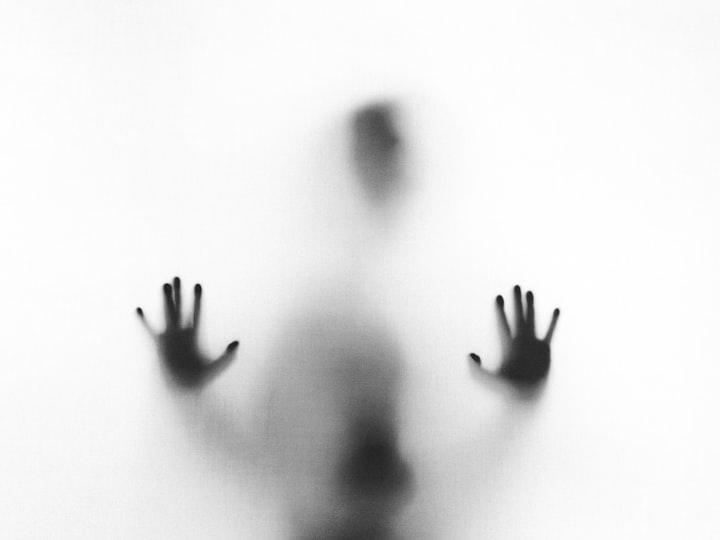Flake it off: A comprehensive guide to treating dandruff and itchy scalp at home
Read the article to learn more
Dandruff is a common scalp condition that affects millions of people worldwide. If you're one of those people who constantly find yourself scratching your head or embarrassed by the appearance of flakes on your clothing, you're not alone. Dandruff can be caused by a variety of factors, including dry skin, certain skin conditions, and even stress. The good news is that it's possible to treat dandruff and soothe an itchy scalp at home without breaking the bank. In this comprehensive guide, we'll explore some of the best natural remedies as well as over-the-counter products that can help you flake it off and get back to feeling confident and comfortable. Follow these tips and tricks to say goodbye to dandruff and hello to a healthy scalp.
1. Understanding dandruff: Causes and Symptoms
Dandruff is a common scalp condition that affects a large number of people. It is characterized by the shedding of dead skin cells from the scalp, which can cause itching, irritation, and flaking. The exact cause of dandruff is not fully understood, but it is believed to be related to a number of factors, including genetics, stress, hormones, and certain medical conditions.
One of the primary causes of dandruff is the overgrowth of a yeast-like fungus known as Malassezia, which is naturally present on the scalp. When this fungus grows out of control, it can cause an increase in the shedding of dead skin cells, leading to dandruff.
Other factors that can contribute to dandruff include a dry scalp, poor hygiene, use of harsh hair products, and certain medical conditions such as psoriasis, eczema, and Parkinson's disease.
Symptoms of dandruff include white or yellow flakes on the scalp and in the hair, scalp itching and irritation, and a dry or greasy scalp. In some cases, dandruff can also be accompanied by redness and inflammation of the scalp.
It is important to understand the causes and symptoms of dandruff in order to effectively treat the condition. By addressing the underlying cause of dandruff, whether it be a fungal infection, dry scalp, or another factor, you can alleviate symptoms and achieve a healthier, flake-free scalp.
2. Common myths about dandruff
Dandruff is a common scalp condition that affects many people, but there are a lot of myths circulating about what causes it and how to treat it. One of the most common myths is that dandruff is caused by poor hygiene. This is simply not true. Dandruff is actually caused by a yeast-like fungus called Malassezia that is present on everyone's scalp, regardless of how often they wash their hair.
Another myth is that dandruff is contagious. This is also false. Dandruff cannot be passed from one person to another through direct contact or sharing personal items such as hats or combs.
Some people also believe that dandruff is caused by a dry scalp, but in fact, it is more often caused by an oily scalp. In some cases, excessive oil production can lead to an overgrowth of the Malassezia fungus, which can cause dandruff.
It's important to understand the facts about dandruff and its causes in order to effectively treat it. Don't fall for these common myths and instead focus on finding the right treatment that works best for your specific scalp condition.
3. Over-the-counter treatments for dandruff
If you are looking for a quick and easy solution for dandruff, then over-the-counter treatments are a great option. These treatments are available at most pharmacies and can help to alleviate the symptoms of dandruff in just a few uses. Some of the most popular over-the-counter treatments for dandruff include medicated shampoos, conditioners, and scalp treatments.
The most common active ingredients in these products are salicylic acid, coal tar, and pyrithione zinc. These ingredients work by slowing down the production of skin cells, reducing inflammation, and killing the yeast that causes dandruff. These treatments are generally very effective, and you should start to notice a significant improvement in your dandruff symptoms within a week or two of using them.
It's important to note that over-the-counter treatments are not a permanent solution to dandruff. If you stop using them, your dandruff symptoms will likely return. However, they are a great option for those who need quick relief from dandruff and itchy scalp. If your dandruff is severe or doesn't improve with over-the-counter treatments, then it's important to consult a dermatologist for further treatment options.
4. Natural remedies for dandruff
If you're looking for natural remedies for dandruff, there are quite a few options to choose from. One of the most popular and effective solutions is tea tree oil. This essential oil has natural antifungal and anti-inflammatory properties that can help reduce dandruff and relieve itchiness. Mixing a few drops of tea tree oil with a carrier oil, such as coconut or olive oil, and massaging it into the scalp can help break up flakes and soothe irritation.
Another natural remedy that has been used for centuries is apple cider vinegar. Its acidity can help restore the pH balance of the scalp, which can help prevent the growth of yeast that can cause dandruff. Mixing equal parts apple cider vinegar and water and applying it to the scalp can help reduce inflammation and remove dead skin cells that can cause flakes.
Aloe vera is another natural remedy that can help soothe an itchy scalp and reduce dandruff. Its anti-inflammatory properties can help reduce irritation, while its enzymes can help break down dead skin cells and unclog hair follicles. Applying fresh aloe vera gel directly to the scalp can provide relief from dandruff and leave hair feeling soft and shiny.
Finally, incorporating certain foods into your diet can also help reduce dandruff. Foods rich in omega-3 fatty acids, such as fatty fish, flaxseed, and walnuts, can help reduce inflammation and promote healthy skin. Probiotic-rich foods, such as yogurt and kefir, can also help maintain a healthy balance of bacteria in the gut, which can in turn help reduce dandruff and other skin issues.
5. At-home remedies for dandruff and itchy scalp
If you're looking for at-home remedies for dandruff and itchy scalp, you're in luck! There are many natural ingredients that can help provide relief from these annoying and uncomfortable symptoms.
One popular remedy is apple cider vinegar. It has antibacterial and antifungal properties that can help combat the yeast that may be causing your dandruff. Simply mix equal parts apple cider vinegar and water, apply the mixture to your scalp, let it sit for 30 minutes, then rinse thoroughly.
Another great option is tea tree oil. It has anti-inflammatory and antiseptic properties that can help soothe an itchy scalp and reduce inflammation. Mix a few drops of tea tree oil with a carrier oil like coconut oil, then apply the mixture to your scalp and massage it in. Leave it on for 20-30 minutes before rinsing.
Aloe vera is another natural ingredient that can help reduce dandruff and soothe an itchy scalp. It has antimicrobial properties that can help fight off bacteria and fungi. Apply fresh aloe vera gel to your scalp and let it sit for 30 minutes before rinsing.
Finally, baking soda can help exfoliate your scalp and remove dead skin cells that may be contributing to your dandruff. Mix a tablespoon of baking soda with water to form a paste, then apply it to your scalp and massage it in. Leave it on for 10-15 minutes before rinsing thoroughly.
6. How to use essential oils to treat dandruff
Essential oils are powerful plant extracts that are known for their medicinal properties. They can be used to effectively treat dandruff and itchy scalp. There are several essential oils that are effective in treating dandruff, including tea tree oil, lavender oil, peppermint oil, and rosemary oil.
Tea tree oil is the most popular essential oil for treating dandruff. It has antimicrobial properties that help to kill the yeast that causes dandruff. To use tea tree oil, simply add a few drops to your shampoo or mix it with a carrier oil, such as coconut oil, and massage it into your scalp. Leave it on for 5-10 minutes before rinsing it off.
Lavender oil is also effective in treating dandruff. It has antifungal properties that help to reduce the growth of yeast on the scalp. To use lavender oil, mix a few drops with a carrier oil and massage it into your scalp. Leave it on for at least an hour before washing it off.
Peppermint oil is another essential oil that can help to relieve dandruff and itchy scalp. It has a cooling effect that helps to soothe the scalp and reduce inflammation. To use peppermint oil, mix a few drops with a carrier oil and massage it into your scalp. Leave it on for 15-20 minutes before washing it off.
Rosemary oil is also effective in treating dandruff. It has antiseptic and anti-inflammatory properties that help to reduce the growth of yeast on the scalp and soothe the scalp. To use rosemary oil, mix a few drops with a carrier oil and massage it into your scalp. Leave it on for at least an hour before washing it off.
When using essential oils to treat dandruff, it's important to dilute them with a carrier oil to avoid skin irritation. You should also do a patch test before using any new essential oil to ensure that you're not allergic to it. With regular use, essential oils can effectively treat dandruff and leave your scalp healthy and itch-free.
7. The importance of scalp care
Taking care of your scalp is important for maintaining healthy hair and preventing dandruff and itchiness. The scalp is often overlooked in our hair care routines, but neglecting it can lead to a host of problems.
Our scalp produces natural oils that keep our hair healthy and moisturized. However, if these oils are not distributed evenly or are stripped away by harsh shampoos, it can lead to a dry and itchy scalp.
To prevent this, it's important to incorporate scalp care into your hair care routine. This can include using a scalp scrub to exfoliate and remove any build-up, using a gentle shampoo that doesn't strip away natural oils, and massaging the scalp to promote circulation.
Additionally, incorporating ingredients such as tea tree oil, aloe vera, and coconut oil into your hair care routine can help soothe and nourish the scalp.
Taking care of your scalp not only prevents dandruff and itchiness, but it also promotes healthy hair growth and can improve the overall appearance of your hair. So, don't neglect your scalp - give it the attention it deserves for healthy, beautiful hair.
8. How diet affects dandruff
Dandruff is a common condition that affects many people. While there are many causes of dandruff, one of the lesser-known factors that can contribute to this condition is diet.
Research suggests that a diet high in sugar, saturated and trans fats, and processed foods can lead to dandruff. These foods can cause inflammation in the body, which can then manifest as skin conditions such as dandruff.
On the other hand, a diet rich in fruits, vegetables, lean protein, and healthy fats, such as omega-3 fatty acids found in fish, can help reduce inflammation in the body and improve the health of the scalp.
In addition to incorporating healthy foods into your diet, it's important to stay hydrated by drinking plenty of water. Dehydration can cause the scalp to become dry and flaky, which can exacerbate dandruff.
If you're struggling with dandruff, consider taking a look at your diet and making some changes to incorporate more healthy, anti-inflammatory foods. Not only can this improve the health of your scalp, but it can also have a positive impact on your overall health and well-being.
9. Lifestyle changes to prevent dandruff
Dandruff can be caused by a variety of factors, some of which are internal. Lifestyle changes can help prevent dandruff from occurring or reoccurring. One of the most important things you can do is to maintain a healthy diet. Foods that are high in sugar, fat, and dairy can increase inflammation in the body, which can trigger dandruff. Instead, incorporate more fruits, vegetables, and whole foods into your diet, which can help reduce inflammation and improve overall health.
Another important lifestyle change is to manage stress. Stress has been linked to a variety of skin conditions, including dandruff. Incorporating relaxation techniques like meditation and yoga into your daily routine can help manage stress levels and prevent dandruff.
Lastly, avoid using harsh chemicals on your scalp and hair. Harsh shampoos, hair dyes, and styling products can irritate the scalp and trigger dandruff. Opt for gentle, natural hair products and avoid over-styling your hair to prevent scalp irritation. By making these simple lifestyle changes, you can help prevent dandruff and keep your hair and scalp healthy.
10. When to see a doctor: Identifying severe cases of dandruff and scalp conditions.
While most cases of dandruff can be treated at home, there are times when it's necessary to seek medical attention. If you're experiencing severe itching, inflammation, or large flakes, it's important to see a doctor as soon as possible. These symptoms could be an indication of a more serious underlying condition.
In some cases, severe dandruff could be a sign of seborrheic dermatitis, psoriasis, or eczema. These conditions require medical intervention and prescription medication to manage and control symptoms effectively.
Other symptoms to look out for include redness, tenderness, or open sores on the scalp. These could be a sign of an infection, which requires prompt medical attention to prevent it from spreading.
If you've tried home remedies and over-the-counter treatments without success, it's time to see a doctor. They will be able to diagnose the underlying cause of your dandruff and recommend the best course of treatment. Remember, it's always better to err on the side of caution and seek medical attention if you're concerned about your scalp condition.
We hope that our comprehensive guide to treating dandruff and itchy scalp at home was helpful for you. Dandruff and itchy scalp can be really frustrating to deal with, but fortunately, there are many effective home remedies that you can try. From using natural oils to adjusting your diet, we've outlined some of the best ways to alleviate dandruff and itchy scalp. We hope that you will find these tips useful and effective in managing your dandruff and itchy scalp. Remember to consult a dermatologist if the condition persists, and as always, take good care of yourself and stay healthy!
About the Creator
Signor Wilson
I'm Signor Wilson, a passionate content creator, YouTuber, blogger, and poet. I love exploring different avenues of creative expression and sharing my insights with the world.






Comments
There are no comments for this story
Be the first to respond and start the conversation.